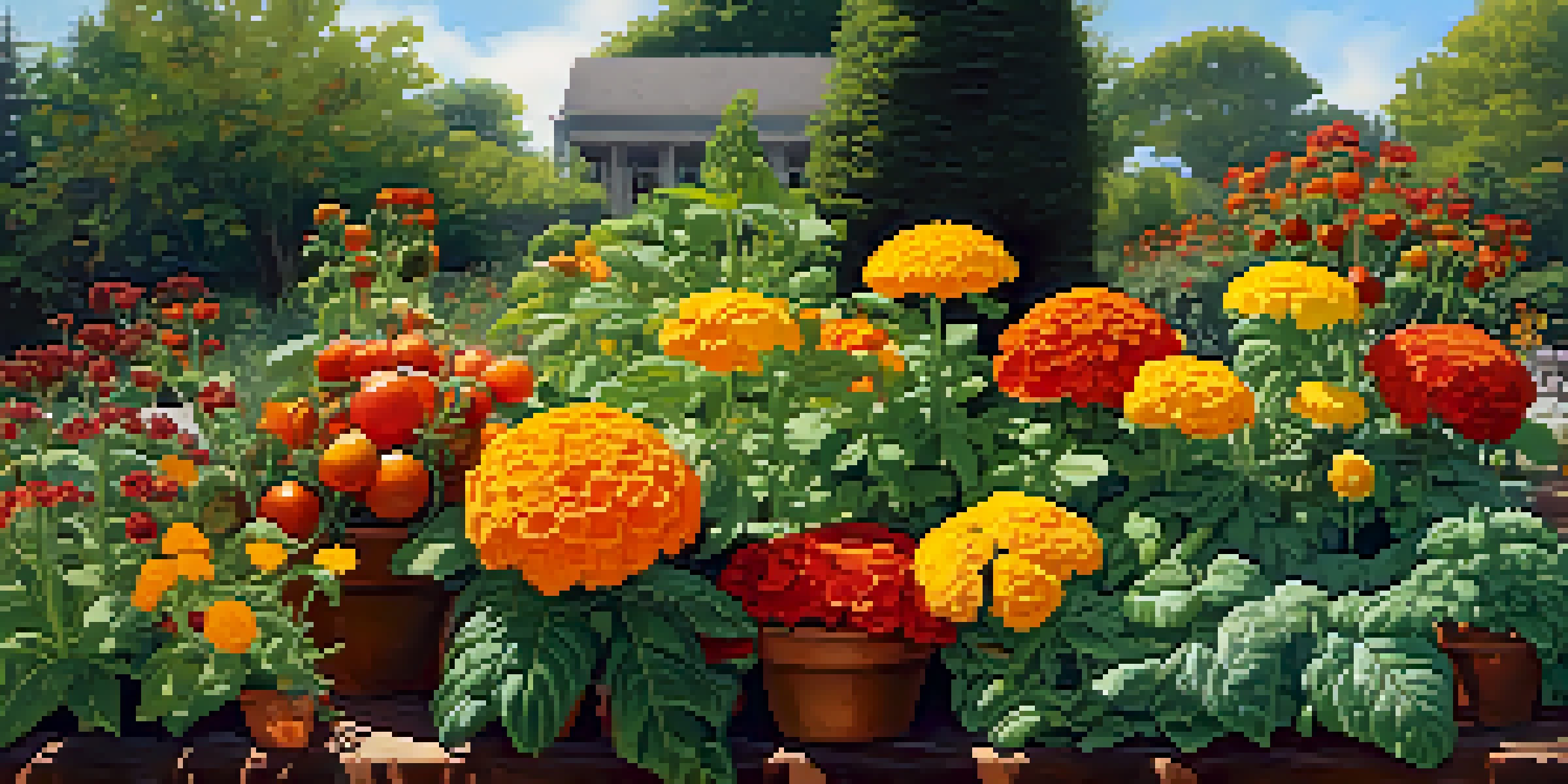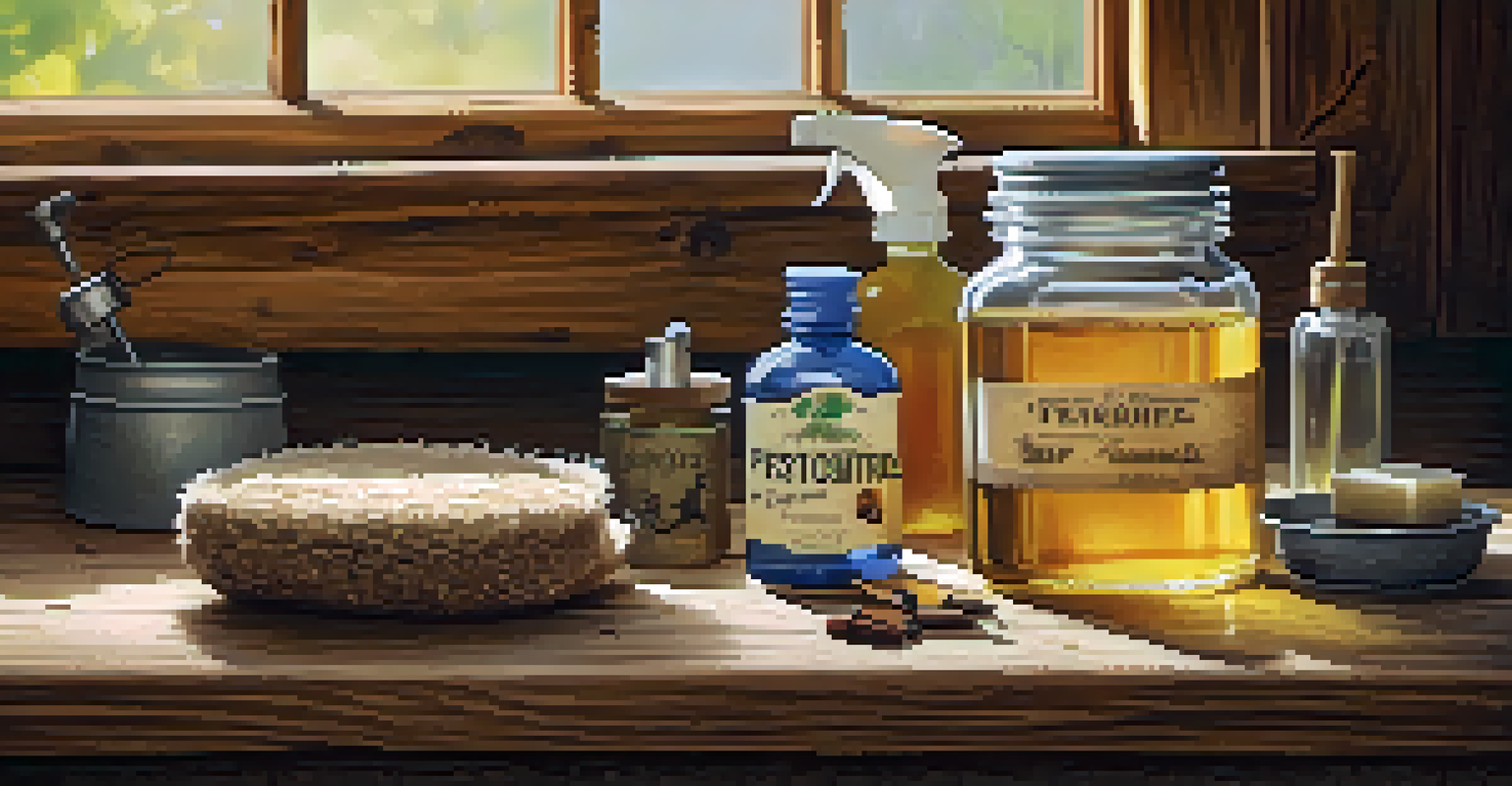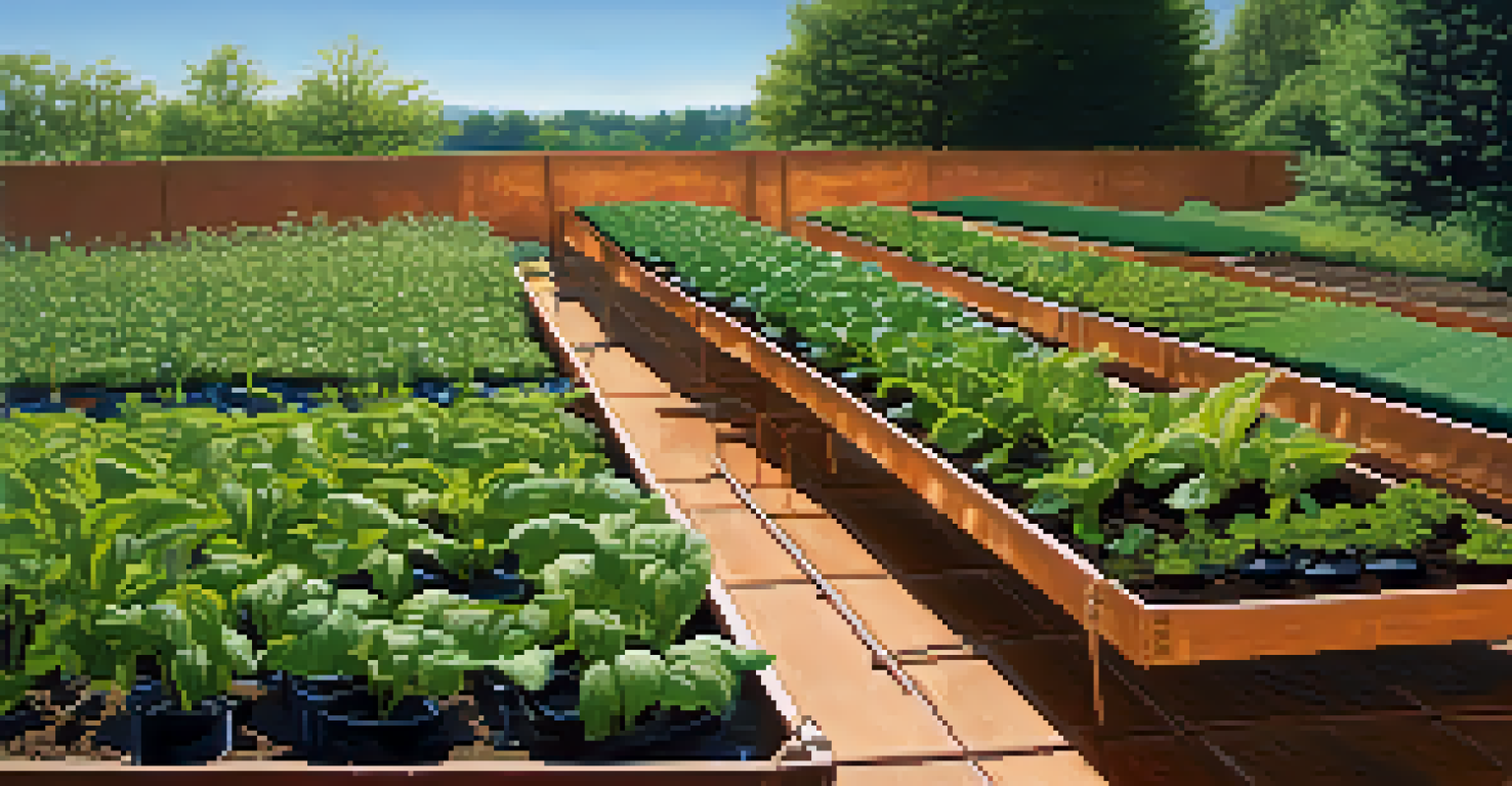Natural Pest Control: Techniques for Organic Gardening Success

Understanding the Importance of Natural Pest Control
Natural pest control is essential for maintaining a thriving garden without harmful chemicals. It emphasizes using eco-friendly techniques that protect the environment while keeping pests at bay. By opting for natural methods, gardeners can promote biodiversity and enhance soil health, creating a more sustainable ecosystem.
The greatest threat to our planet is the belief that someone else will save it.
Many traditional pesticides can harm beneficial insects, such as bees and ladybugs, which play a crucial role in pollination and pest control. By understanding the importance of preserving these beneficial species, gardeners can make informed choices that benefit their plants and the surrounding ecosystem. Natural pest control aligns with organic gardening principles, focusing on prevention rather than elimination.
Ultimately, embracing natural pest control methods not only leads to healthier plants but also contributes to a healthier planet. This approach empowers gardeners to cultivate their green spaces responsibly, fostering a sense of stewardship for the environment. Let’s explore some effective techniques that can help you achieve organic gardening success.
Companion Planting: Friends in the Garden
Companion planting involves pairing certain plants together to naturally deter pests and promote growth. For instance, marigolds are known to repel nematodes, while basil can improve the flavor of tomatoes and deter tomato hornworms. This age-old technique not only optimizes space but also enhances the overall health of your garden.

By strategically placing plants that benefit each other, you can create a natural barrier against pests. For example, planting garlic near roses can help fend off aphids, while planting chives can deter carrot flies. This method taps into the natural relationships between plants, making it a win-win for both your garden and the environment.
Natural Pest Control Benefits
Natural pest control methods promote a healthier garden and planet by preserving beneficial species and enhancing soil health.
Companion planting encourages gardeners to think creatively about their layouts and plant choices. It’s a fun way to experiment with different combinations and observe how they interact. Plus, it often leads to more vibrant and diverse gardens, making your green space not only productive but also visually appealing.
Natural Predators: Enlisting Nature's Help
One of the most effective ways to control pests naturally is by attracting their natural predators. Ladybugs, lacewings, and parasitic wasps are all excellent allies in the battle against common garden pests. By creating a welcoming environment for these beneficial insects, gardeners can reduce pest populations without resorting to chemicals.
In every gardener, there is a child who believes in The Seed Fairy.
To attract these natural predators, consider planting a variety of flowers, such as dill, fennel, and yarrow. These plants provide food and habitat for beneficial insects, encouraging them to settle in your garden. Additionally, avoiding broad-spectrum pesticides ensures that these allies thrive, contributing to a balanced ecosystem.
This method not only helps control pests but also fosters a sense of harmony within your garden. Observing the interactions between plants and insects can be a rewarding experience, as you watch nature work its magic. In essence, inviting nature’s help into your garden is like having a dedicated team of pest control agents working tirelessly for you.
Homemade Remedies: Simple Solutions for Pest Problems
Creating homemade pest control remedies can be a fun and effective way to tackle garden issues. Common ingredients like soap, vinegar, and essential oils can serve as natural deterrents. For instance, a mixture of soap and water can help control aphids, while a garlic spray can repel a variety of pests.
These homemade solutions are not only easy to make but also safe for the environment and your plants. By experimenting with different ingredients, you can find a recipe that works best for your specific pest problem. Plus, it’s a great way to engage with the gardening process and take control of your garden's health.
Companion Planting Works Wonders
Pairing plants strategically can deter pests while boosting growth and overall garden health.
Remember, the key to success with homemade remedies is to test them on a small area first. This allows you to observe how your plants react without risking damage. With a little creativity and resourcefulness, you can develop effective pest control solutions right in your kitchen.
Physical Barriers: Keeping Pests at Bay
Sometimes the simplest solutions are the most effective, and physical barriers are a prime example. Using row covers, nets, or plant collars can protect your plants from pests while allowing sunlight and rain to nourish them. These barriers act as a shield, preventing pests from reaching your precious plants.
For instance, using floating row covers can help protect seedlings from insects like cabbage worms and flea beetles. Additionally, placing copper tape around pots can deter slugs and snails. By implementing these barriers, you create a proactive approach to pest management, reducing the need for reactive measures.
Physical barriers are particularly useful for organic gardeners who want to maintain a chemical-free approach. They are easy to install and can be tailored to fit various garden layouts. By investing in these simple solutions, you can safeguard your plants and promote a healthier growing environment.
Encouraging Biodiversity: A Thriving Ecosystem
Promoting biodiversity in your garden can significantly enhance natural pest control. A diverse garden attracts a wide range of beneficial insects, birds, and other wildlife that contribute to a balanced ecosystem. By planting a variety of flowers, herbs, and vegetables, you create a habitat that supports various species.
For example, planting native species can attract pollinators and beneficial insects that help control pest populations. Additionally, incorporating different plant heights and structures provides shelter and nesting sites for birds and beneficial insects. This variety can create a robust ecosystem that naturally regulates pest populations.
Biodiversity Enhances Ecosystem
Encouraging biodiversity in your garden attracts beneficial insects and wildlife, creating a balanced ecosystem that naturally regulates pests.
In essence, a diverse garden is a healthy garden. By fostering biodiversity, you not only improve pest control but also enhance the resilience of your garden. Embracing a variety of plants and wildlife can lead to a flourishing environment that benefits everyone involved.
Monitoring and Maintenance: Staying Proactive
Regular monitoring is key to successful natural pest control. By keeping a close eye on your plants, you can identify pest issues before they become major problems. This proactive approach allows you to take action quickly, whether that means applying a homemade remedy or introducing beneficial insects.
In addition to monitoring, maintaining proper garden practices can help prevent pest infestations. Ensuring your plants are healthy through adequate watering, mulching, and proper spacing can make them less susceptible to pests. Healthy plants are better equipped to withstand pest pressures and recover from any damage.

Ultimately, staying proactive in your gardening practices leads to a more resilient and productive garden. By combining regular monitoring with sound maintenance strategies, you create an environment where natural pest control can thrive. This approach not only protects your plants but also contributes to the overall health of your garden ecosystem.